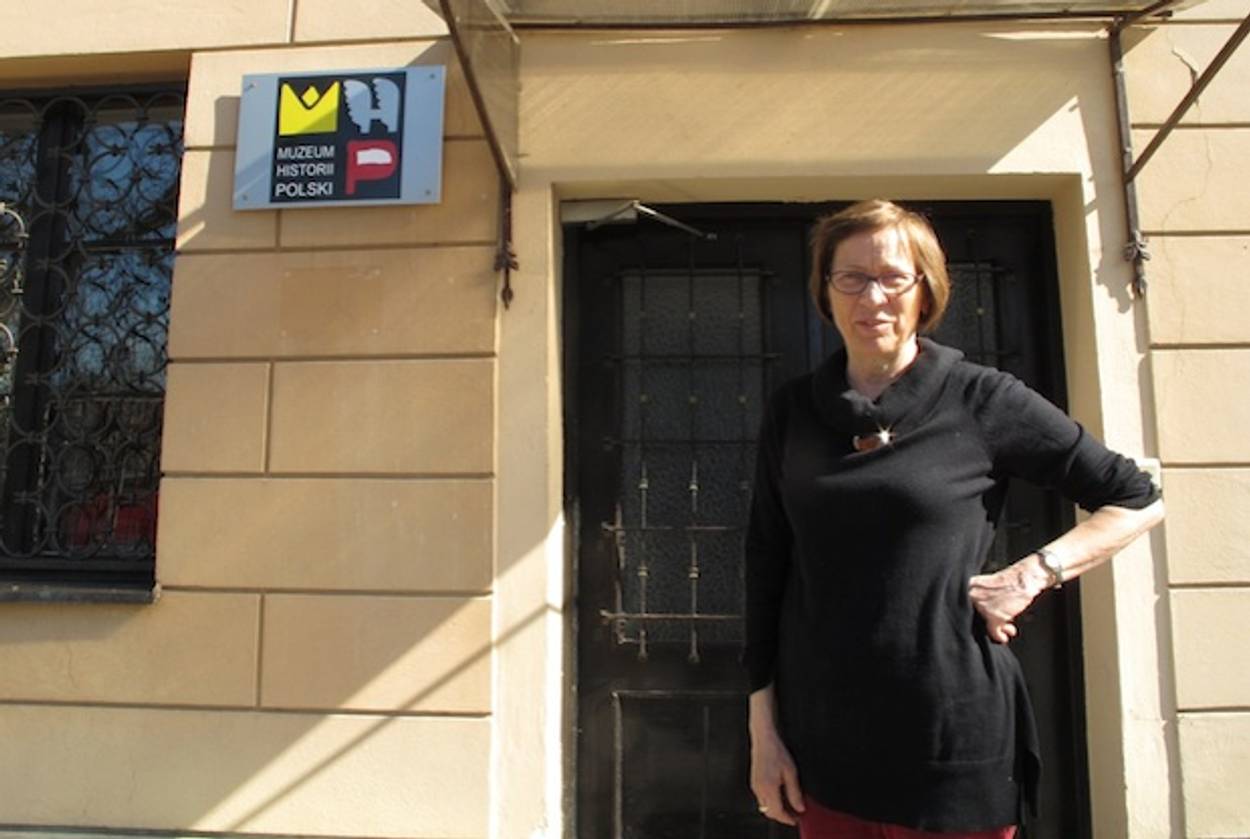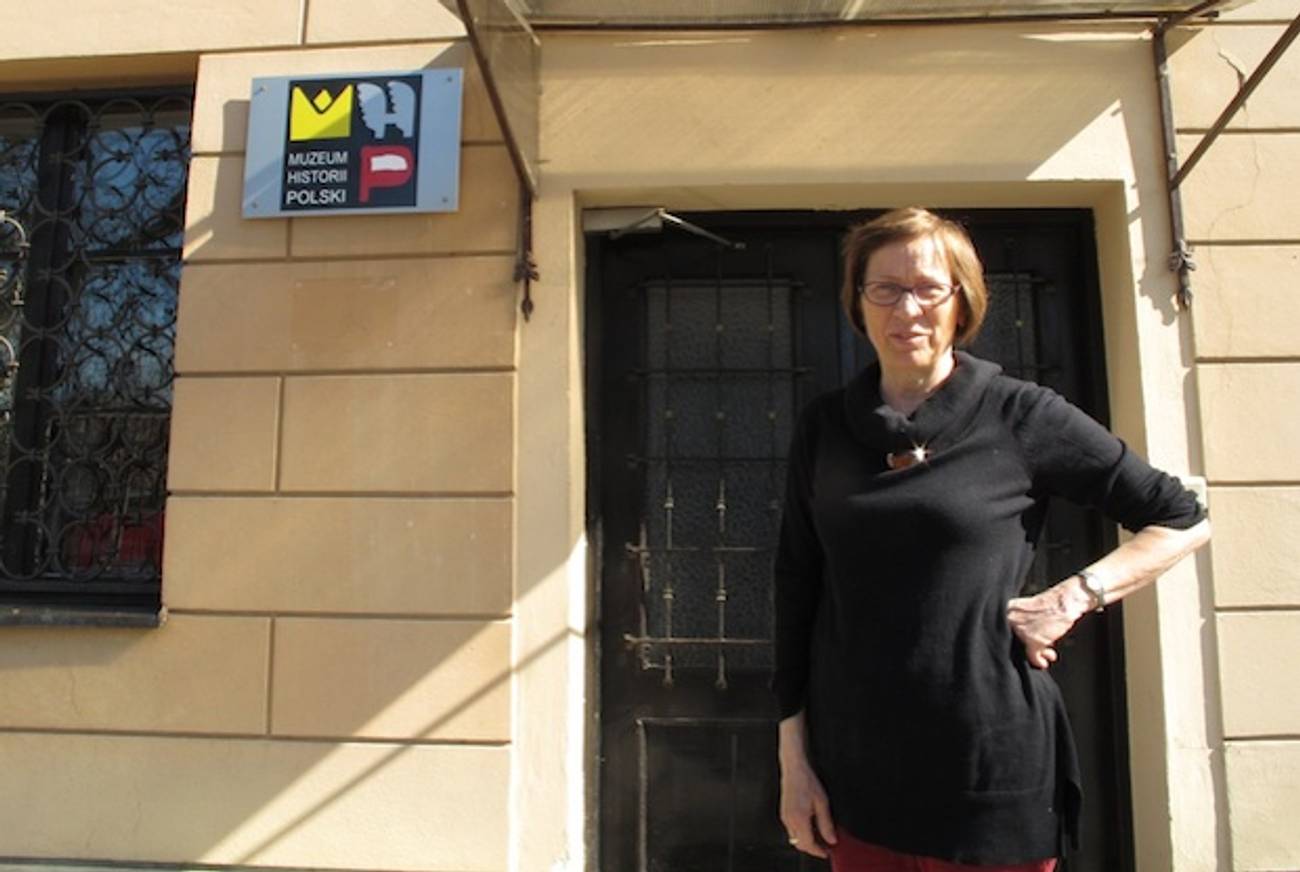Who Owns Jan Karski?
The politics of memory hit Poland’s unsung hero




It was 1986 or 1987 and—though he was a world-famous emblem of Polish resistance who had snuck into the Warsaw Ghetto twice, had written a seminal account of his wartime experience, and enjoyed audiences with FDR and other world leaders—the young Polish scholar Ewa Wierzynska had no idea who Jan Karski was. It took a single speech one evening in Chicago to change her life: herself an asylum-seeker who had fled the terrors of Communist Poland for the safety of the United States, she was stunned to learn about Karski’s endeavors and his stature, both of which were kept largely in the dark by the unsympathetic repressive regime back home.
Even in the United States, where he’d found shelter after the war, Karski’s fame fell far short of his heroic deeds: a non-Jew, he risked his life on numerous occasion to witness and report the conditions in the Ghetto, and had undertaken a number of other daring missions on behalf of the resistance, but most Americans knew him only as an engaging intellectual. He received his PhD from Georgetown in 1952, joined the university as a professor of eastern European affairs, and cultivated a self-deprecating and subtle way of public speaking. “You couldn’t really tell what he was thinking,” Wierzynska recalled. “Even his students had no idea who he was.”
That soon changed: From Claude Lanzmann, who captured Karski in his film Shoah to a host of institutions and states who had bestowed on him their highest honor, Karski was soon feted worldwide. In Poland, however, he was still relatively unsung, and when Wierzynska returned home in 2005, she vowed to change that. It would be a pity, she told anyone who would listen, for Polish children to learn about this great Polish hero from their American counterparts.
Thus began a decade-long attempt to commemorate Karski, still very much a work in progress. As soon as she began her labors, Wierzynska said, she experienced something she calls “the Karski karma”: partners, from Google to Disney, teamed up to help her make Karski renowned not just as a Polish hero but as a moral figure of universal importance, offering a lesson in how ordinary people may stand up for justice even in the face of unspeakable horrors.
Poland being a layercake of historical sensitivities and wounds, however, Wierzynska’s efforts weren’t always uncomplicatedly received back home, where Karski’s universal appeal is burdened by political and ideological complexities and rivalries. Asked to elaborate on these complications, Wierzynska, seated in the conference room of the still-nascent Museum of Polish History, smiles diplomatically and skirts the issue by quoting any number of the many luminaries–Bill Clinton, Zbigniew Brzezinski–who are Karski’s passionate fan and advocates. She does admit, however, that some of her subject’s difficulties are innate.
“There’s no closure in Karski,” she said. “He doesn’t let us relax. He said that the Holocaust was mankind’s second original sin, that it haunted him every day, and that he wanted it to be so.” That, she said, was a tough message to sell in a world increasingly given to the short and the uncomplicated and the unambiguously uplifting. But sell she does: next year is the centennial of Karski’s birth, and no less than three academic conferences are under works in Poland and the United States, and, earlier this year, Georgetown republished his astonishing book of testimony from wartime Poland, The Story of a Secret State. Some famous film directors are sniffing around as well, thinking of a Karski biopic. And being the posthumous recipient of the Presidential Medal of Freedom last year helped as well. Still, in Poland, like everything historical, the same is true of preserving Karski’s legacy: It’s complicated.
Liel Leibovitz is editor-at-large for Tablet Magazine and a host of its weekly culture podcast Unorthodox and daily Talmud podcast Take One. He is the editor of Zionism: The Tablet Guide.